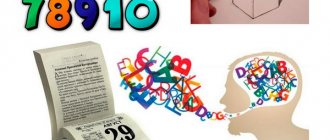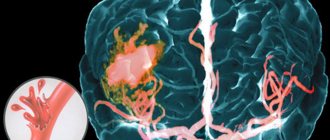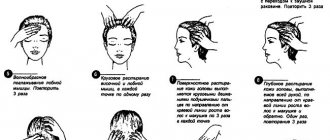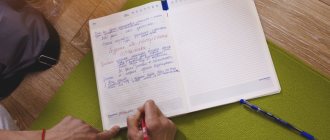Make your workplace comfortable and keep it in order
When it is comfortable to work at a desk, your productivity increases. Concentrating on tasks is much more difficult if the table is cluttered, the chair is uncomfortable, the light from the lamp is annoying, and the room is stuffy or cold. Therefore, you need to fix the things in your room that make you uncomfortable studying, and learn to maintain constant order. If on your desk there are only those textbooks, notebooks and printouts that are needed at the moment, you will not have to waste extra energy looking for the right thing.
Nutrition and daily routine
- Research has shown that the ability to concentrate is highly dependent on rest. If you feel tired, your thinking will be distracted. Go to bed and get up at the same time, rest for 7-8 hours every day (but don’t oversleep on the weekends - this will disrupt your biorhythm and make you lazy).
- Review your daily diet. Nutrition should be balanced. Frequent overeating will make you feel sleepy and sluggish. Healthy food (protein from lean meat, fish, dairy products, freshly squeezed juices) together with good sleep improves the ability to concentrate.
- Provide your body with oxygen. Most of the blood that carries oxygen is in the lower part of the body, not reaching the brain, and it becomes more difficult to concentrate. To solve this problem, leave your work area more often, stretch your legs, and walk more. Do a couple of simple exercises. Regularly ventilate the room you are in.
- The state of health largely determines the ability to concentrate. With constant fatigue, illness and discomfort, it will be difficult to concentrate. Get regular medical examinations, take a course of vitamins and exercise - for example, jog in the morning or sign up for a swimming pool.
Music for the brain
To improve memory and brain function in general, you can listen to music. It has been proven that classical and relaxing melodies contribute to the formation of a stable emotional background, while stimulating memory, thinking and attention.
In the mid-20th century, the effect of binaural beats was discovered in the world - an empty sound that our brain perceives as natural low-frequency beats. Listening to these sounds, both on their own and in the background with classical music, will allow you to better remember the information you are studying and solve various mental problems with great success.
Folk remedies to improve memory
Improvements in brain activity can be achieved not only through training. You can use folk remedies to lower intracranial pressure, get rid of tinnitus, and reduce migraine symptoms, thereby improving your memory.
For example, you can make clover tincture . To do this, fill a 1-liter container with the heads of this plant and fill it with vodka to the top. The tincture should be stored for 2 weeks in a cool place, protected from light.
You need to use 1 tbsp. spoon at night for three weeks.
Important! This method is contraindicated for expectant mothers and people with heart failure.
You can increase brain activity using elecampane root tincture . The crushed roots of the plant (1 tablespoon) must be poured into a container and added 2 glasses of vodka, then put in a dark place. After a month, the infusion is filtered.
You need to take the product three times a day before meals in an amount of 20 ml. Treatment should be carried out at least 30 days a year. Contraindicated for people with heart and kidney diseases, as well as during pregnancy.
Red rowan bark will help stimulate brain function . One tbsp. A spoonful of rowan is poured into a glass of hot water and boiled on the stove for 10 minutes. The decoction should steep for 5-6 hours, after which the mixture is filtered. 20 ml of decoction should be taken 3 times a day. The course should be 35 days, twice a year. You should not take the infusion if you have increased blood clotting or pregnancy.
Exercises
The brain can be called a muscle, and every muscle can be trained and developed. By doing exercises to improve your concentration, you will develop the appropriate “muscles” that will help you focus on the tasks at hand with ease. We provide tips on how to improve mindfulness. They are useful for both adults and children.
Meditation
Meditation improves your ability to concentrate. If you meditate every day for 10-15 minutes, then after a couple of weeks you will notice how it has become much easier to concentrate at the right moment.
Reading
An effective way to learn to concentrate, as well as express your thoughts simply and clearly, is by reading a short story and then retelling it. Read a short article in the newspaper and try to summarize its essence.
In the future, complicate the task: read the book for 15-20 minutes, then write down on paper what you remember from it. At first, many small details will fall out of your memory, but in the future you will be able to easily retell in detail everything you read. A sign that you have excellent concentration is detailed retelling.
There is another variation of the exercise: read a short sentence and rewrite it word for word from memory. Over time, add another sentence, then a third. This also trains memorization.
Control over your desires and emotions
Our emotions and desires, especially momentary ones, are almost uncontrollable. But if you learn to control them, your ability to concentrate will increase significantly.
When you constantly feel nervous when hearing unpleasant news or during serious conversations, control yourself and prevent yourself from feeling anxious and surprised. Such self-control will help you in all areas of life - not just at work. If, for example, you follow a healthy diet and suddenly want to treat yourself to junk food, don’t let this desire get the better of you - take control of it.
Focusing on sleep
Recommendation for those who often have sleep problems. This method will help not only increase concentration, but also relieve insomnia. Sit in a chair, place a glass of water in front of you. Think about how calm he is and imagine his calmness being transmitted to you. Soon you will notice how relaxed you are and you will feel like falling asleep.
You can also imagine yourself as an inanimate object - for example, a tree branch that lies quietly in a calm forest.
Focusing on processes inside the body
Lie down and relax. Concentrate on the beating of your heart, imagining how with its help blood is distributed to all organs - to the tips of your fingers.
Focusing on smells
While walking, concentrate on smells - for example, the scent of flowers as you pass by a flower bed. After this, choose a specific smell and try to concentrate exclusively on it, discarding extraneous thoughts and feelings.
Mnemonics
One of the techniques used to develop attention, memory and thinking is mnemonics (or mnemonics). Memorization in this technique occurs due to the orderly arrangement and linking of information to each other using associations.
For example, each letter of the alphabet is assigned a specific number. These numbers can then be used to make words, sentences, and even entire stories.
Numbers can also be associated with any other objects or phenomena. Memorizing information using mnemonics involves the use of consonant words, rhymes, and vivid associations.
Among the mnemonic techniques used to develop memory is the so-called “Roman room effect.” Objects that need to be remembered are mentally placed in a well-known room in certain places.
Recommendations from experts
In addition to exercises, the following tips will help increase concentration:
- Fatigue has a significant impact on brain activity. The first thing that increases concentration is simple rest. To stay in good shape, it is important to take breaks in a timely manner, not to overexert yourself, take your sleep schedule seriously, breathe more fresh air and monitor your health.
- Try to coordinate your activities according to your biorhythms. I think everyone has heard about owls and larks. If you feel your best performance in the first half of the day, do the most difficult mental work at this time of day. And vice versa.
- Eliminate external distractions. Declutter your desktop, turn off notifications in mobile apps, and don't play music or videos in the background when you're doing something that requires attention. Avoid multitasking whenever possible.
- Set goals. They can be either short-term, i.e. limited in time, or long-term, for the future. When you have a goal, you are usually less distracted by small things.
- The next recommendation for those who work from home: do not sit at your laptop in bed. The sleeping place is intended for sleeping, and the brain understands this very well. And working in such an environment, you try to force yourself to relax and concentrate at the same time, which leads to dissonance.
- If you feel that you are exhausted, but you need to finish the work, take a position that is unusual for you. For example, change the position of your feet, your posture, change your facial expression, cross your legs differently, etc.
By the way, we have another interesting article on how to make your brain work.
Focus in psychology
Our brain, like a computer, constantly analyzes a huge amount of information. For the most complete picture of everything that is happening around him, he needs to take into account as many details and nuances as possible. In addition to actual objects and phenomena, previously accumulated experience and information are also taken into account. The person himself is not aware of most of this work; it occurs in the subconscious. But we comprehend a significant part.
Concentration is the ability to comprehend one thing at a specific moment in time, without allowing information noise to distract consciousness from the main thing. Different people have this ability to varying degrees. Extraneous stimuli, multitasking, and a large number of unsolved problems distract our consciousness from the current action. Read on to learn how to increase your concentration.
Concentration: what is this quality?
The ability to concentrate thoughts, manage a situation, perform actions at a given moment in time and not be distracted by extraneous matters is called mindfulness.
This quality is flexible: attention can be directed simultaneously to several objects, it can decrease or switch to other actions. It is like a ray that narrows and expands, emitting bright or weak light, illuminating one or more objects.
Consider the actions of a bus driver. His actions at one moment are aimed at controlling the vehicle, monitoring the road and road signs, markings, surrounding cars and pedestrians. At the same time, he has to follow traffic rules, monitor instruments, and pay attention to the visibility of objects. And some drivers, due to circumstances, have to accept payment for travel. And this is so much that just one person needs to take into account!
But an adult learns all this and gradually develops his abilities. The main thing is to train regularly and purposefully.
Developing attention will require memory, self-discipline, stability and concentration, which directly depend on the character traits of a particular person. The more developed the powers of observation, the better the concentration. It is easy for such people to bring the work they have started to completion, switch to different types of activities, and concentrate on one type of work for a long time.
Medications
How to increase your concentration? There are several effective pharmaceutical products that have almost no or minor side effects.
- Glycine is a popular drug, especially among students. It relieves stress and increased nervous excitement, improves brain performance.
- Vitrum Memory is recommended to be taken if intellectual abilities and attention deteriorate. This herbal medicine supplies the brain with oxygen, increasing blood circulation in this organ.
- Undevit - a dragee based on a complex of vitamins A, B, C, E, P, produces a versatile effect.
- Aminalon restores nervous processes and removes toxins that form in the brain from the body.
- Bilobil is recommended for insomnia and decreased intelligence, as well as for getting rid of fear and anxiety. The drug improves oxygen supply to the brain.
- Intellan is a herbal preparation useful for depression, decreased intellectual capabilities and forgetfulness.
- Ginkgo biloba is recommended for memory and attention, insomnia and dizziness.
Your time
20-30 years ago, time management was about making the most of our time. People wanted every minute to be filled with something meaningful. However, in the 21st century our problem is completely different. We are engaged in the reclamation of time and the protection of concentration. This means that if you have a full schedule where every minute is occupied, you will constantly experience a lack of attention.
You ask why is this? Because these days we are constantly distracted by everything. Despite our best efforts, interruptions are a part of everyone's daily life. This means that instead of executing our schedule, we actually want to create a buffer zone. The buffer zone allows us to respond to interruptions and accomplish whatever we set out to do that day.
The first step to creating a buffer is to re-evaluate the time for certain activities. More often than not, we spend 50% more time completing work than we planned. This means that if you think an activity will take you an hour, you need to plan 90 minutes for it.
However, if you are in a situation where you are constantly interrupted, or if you have difficulty estimating how long a job will take, you may overestimate it by 100%. This means that if you think something will take you 30 minutes, you plan for an hour.
The second step to creating buffer space in your schedule is to schedule small breaks. We recommend about 10 minutes for every hour you have scheduled. This means that if you have two hours to work, you take a 20-minute break.
There's actually a bit of science behind it. Most people learn best in 90 minutes and then take a 20 minute break. By leaving buffer space in your schedule, you'll find it easier to stay focused and ready for whatever comes your way.
You would be surprised to know that working too hard actually creates a lack of focus. When people work 10 hours a day, they get distracted by a lot of little things. On the other hand, if you limit the hours you work, it will actually force you to be more focused.
Think of your workday as a race. Races have a clear start and finish line. This means your working day should have a clear start and end time. This creates a clear boundary within which you know you must be as productive and focused as possible.
First, try reducing your working time by one hour, if circumstances allow you, of course. The important thing here is that you create a constraint in your schedule. And limitation creates structure. And that structure creates boundaries around your day, which is critical to staying focused.
Methods for training attention in children and adolescents
Until the age of three, children’s attention is involuntary, that is, it does not depend on their desire. By the age of 5–6, concentration already begins to obey the will of the child, which means that among younger schoolchildren it is already possible to introduce some simple training to develop attention.
Memory game
The goal of the game is to remember the sequence of words as accurately as possible. The parent comes up with a chain of words that the child understands, and the child must remember and reproduce them. To make it easier for your child, it is better to choose words from one category, for example:
- beets, carrots, cabbage, potatoes, onions;
- cat, bear, fox, parrot, grasshopper;
- plane, train, ship, rocket, truck, etc.
This exercise can also be offered to a group of children of 3-4 people. An adult names a chain of words. The first child remembers and names the first word, the second child – first and second, the third – first, second, third, etc.
Find the words
The child is given a series of letters. Some of them are a random set of letters, some are words. The task is to find the words. Here's an example:
BYNSHLKOTDDOPRETORTCCHYLOBDYKVMIN
Younger children can come up with words from one category, for example, animals, fruits, furniture, etc. Older children can be given more difficult tasks: not only to find words, but also to highlight the unnecessary ones. For example, all words are verbs, but there is also one adjective. Or, among words in the singular, find something that is in the plural.
Name the color
A wonderful concentration exercise that is useful for both children and adults. To prepare, you will need a sheet of paper and multi-colored markers or pencils. You need to write the names of the colors in words so that the color in which the word is written does not coincide with the word itself. The easiest way to understand the meaning is from the picture below.
Task: name the color in which the word is written, and not get confused by the very name of the word. You can even arrange a competition to see who can complete the task faster and make fewer mistakes.
Useful tips
Here are a few more useful tips that will help improve your child’s concentration:
- It is also extremely useful for children to read aloud and retell. And so that both hemispheres of the brain are involved, you can invite the child to read poetry and at the same time squat or alternately raise his arms.
- Anything that promotes the development of fine motor skills has a beneficial effect on brain activity. Puzzles, construction sets and other similar games require high concentration and attention.
- To ensure that the student’s attention does not wander when doing homework, the desk should be in order, stationery should be placed in its place, and everything unnecessary should be removed. Lighting also matters: it should be close to daylight.
- You should not interrupt the child in the process of some activity in which he is immersed. It is better to warn him in advance about the need to change classes so that he has time to get used to this idea.
- If the child is very absent-minded and easily forgets about something important, you can prepare notes for him and post them on the desktop so that his eyes periodically catch on to them.
Dietary supplements for the brain
NSP
Contains plant components (ginkgo biloba, gogotu kola, bacopa), lecithin and omega-3.
Dietary supplements can normalize the nervous system, improve memory and attentiveness in adults.
These remedies are used by people who have suffered a stroke or other brain diseases.
Doppelherz
Combines Ginkgo Biloba plant extract and vitamins B1, B2, B6. Together, these substances can improve cerebral circulation, strengthen the walls of blood vessels, improve memory and attention.
Evalar
It is represented by a wide range of dietary supplements and tablets containing a number of useful vitamins (groups C, D, E, P, B) and elements.
Thanks to the composition of dietary supplements, blood circulation in the brain improves, at the same time, memory and mental activity in general become more effective.
Solgar
It has been producing its products using unique technologies since 1947. It is represented by a wide range of nutritional supplements, which include herbal ingredients, vitamins and microelements that help the brain work more efficiently.
Helpful advice on how to improve your mindfulness
In order to increase your perception and attention, I recommend starting to read the Bible. Since it contains all kinds of movements from obvious (the book of Genesis, Esther, Nehemiah, the Gospel of Mark), to little noticeable (the book of Proverbs, Exodus, Psalms, Matthew, Luke), barely discernible (Ecclesiastes, Job, Song of Songs) and even hidden ones (the book of Daniel, Revelation, the prophet Ezekiel, Leviticus).
The Bible is an excellent tool for training our attention. Since there are both movements that are difficult to perceive, and the simplest ones.
Outstanding writers, artists and scientists knew about the Bible firsthand. In my opinion, every self-respecting person should study this book of amazing relationships and movements.










